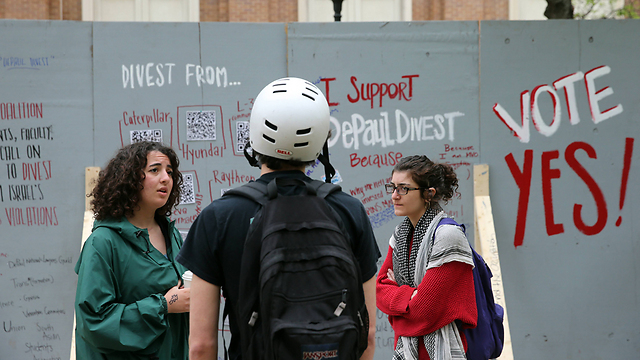
The Anti-Semitism Awareness Act will mirror the State Department’s Special Envoy to Monitor and Combat Anti-Semitism’s definition of anti-Semitism, including critical language to define where anti-Israel bias crosses the line into anti-Semitism. The new Act would enhance the Education Department’s ability to identify, investigate, and punish all forms of anti-Semitism, including anti-Zionism and anti-Israel harassment.

When asked about the Act, Senator Casey channeled Natan Sharnasky’s “3D” definition of anti-Semitism and listed the following examples of where the bill’s tools would be helpful:
- Calling for, aiding or justifying the killing or harming of Jews,
- Accusing the Jews as a people, or Israel as a state, of inventing or exaggerating the Holocaust,
- Demonizing Israel by blaming it for all interreligious or political tensions,
- Judging Israel by a double standard that one would not apply to any other democratic nation.
Because of the bill’s potential impact on anti-Israel activities, we have seen a steady flow of hysteria and condemnation, in particular from the far left. Israel boycott groups like Jewish Voice for Peace (JVP) claim that the bill’s “overly broad language has the potential to define any criticism of Israeli policy as anti-Semitic,” and that it would prevent “frank discussions of the impact of Zionism, campus disagreements about the future of Israel/Palestine, and in fact, much of what falls under Jewish studies in all facets, including courses.”
The irony is that JVP in particular, which supports and advocates for boycott, divestment and sanction (BDS) against Israel, is only willing to have “frank discussions” through its own prism, which sees Israel as the source of all evil in the Middle East and something to be abolished.
University administrators like Chancellor Howard Gillman and Dean Erwin Chemerinsky from the University of California, Irvine also took issue with the bill, despite living on a campus with one of the country’s most hostile educational environments for Jewish students.
Earlier this year at Irvine, a Jewish student emerging from a Holocaust-related event was chased by a mob of “anti-Israel” protesters and was forced to barricade herself in a school building as her pursuers banged on the doors and windows and chanted “Long live the Intifada!” She had to be rescued by the police.
In 2010, following the shouting down of then-Israeli Ambassador Michael Oren, Dean Chemerinsky wrote that he has not seen “the slightest indication of anti-Semitism” at UC Irvine, nor “heard one complaint about an anti-Semitic incident on campus.”
Despite being a distinguished constitutional scholar, Dean Chemerinsky mischaracterized the proposed Anti-Semitism Awareness Act, claiming that the bill would “require the Education Department, when deciding whether to investigate incidents on campus, to consider the State Department’s definition of anti-Semitism.”
That is not what the bill says. Rather, under the proposed legislation, the Department of Education would consider the State Department definition – adopted in 2010 – when deciding whether severe, persistent, and pervasive harassment and intimidation (that federal civil rights statutes are designed to prevent) were motivated by anti-Jewish animus. That distinction is critical. On its face, the proposed legislation would not in any way encourage or permit the government to investigate or take action against protected speech-based and expressive activities.
In fact, Irvine provides the strongest evidence that the Anti-Semitism Awareness Act is needed now more than ever. It is dismaying, but not surprising, that these two administrators and groups like JVP would rather misrepresent the text and constitutional soundness of the proposed legislation than address the culture of anti-Semitic hate that has arisen around the country, particularly at universities.
Academia has unconsciously revealed that Jews and Israelis are the canaries in the coal mine. If universities are indicators of social trends, then anti-Semitism is becoming more acceptable in the guise of anti-Zionism. Only Jews are seen as unworthy of having a sovereign state, thanks to various sins past and present.
Such attitudes are quite common on university campuses, and are protected by “academic freedom.” Yet it is also another reason for the growing gap between academia and the public; on moral issues, like defending democracy against jihadi terror, Americans and its elected officials are learning that universities are choosing their own way to define racism which may not always align with reality.
Asaf Romirowsky is the executive director of Scholars for Peace in the Middle East (SPME) and a Fellow at the Middle East Forum.
















